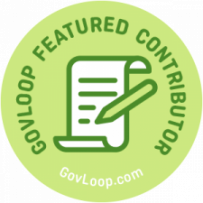
Most people who work in government did not go to school to learn how to manage things. They went to school to learn the things that are managed – like science, research, mathematics, finance, statistics, diplomacy, etc.
Although government is not a business in the sense that most people think, it operates like a business in many ways. It has inputs and outputs; it has processes; it manages money and people; and a host of other business-like things. The key difference is we seek to maximize the benefits for the public, not profit for a company.
I recommend the Dorling Kindersley (DK) Visual Encyclopedia to help you keep nurturing your intellectual growth and learn management skills. It is a new series that takes big topics and breaks them down into bite-sized learning adventures. It helps you learn at your own pace. The series includes many topics, but I started with “How Management Works,” edited by Phillippa Anderson.
A treasure trove of tips
There are so many valuable concepts, visuals, statistics and facts in this book. But for sake of space, I’ll only highlight a few concepts that really resonated with me today.
1. People don’t resist change; they resist being changed.
Change is inevitable. And managing change is a critical management skill, so much so that the encyclopedia gave twice the number of pages to the topic than other concepts.
This visual encyclopedia portrays John Kotter’s eight steps for leading a successful change process as stepping stones across treacherous water in a rainstorm. It feels just like that!
In my experience, the fifth step is the make-it-or-break-it step – “empower action.” Kotter recommends that leaders focus on building the structure for successful change and actively supporting reluctant staff, while rewarding staff who help facilitate the change. It is the point where you are pushing up a hill that never seems to end, and then all of a sudden – Whoosh! It can go downhill from there.
2. Three-fourths of workers receive no formal training in meeting facilitation.
Most people are hired for their technical or programmatic background. It is just assumed that they will know how to host a meeting. But most people just wing it. This is a vital skill that makes a big difference for productivity in government organizations. This book offers a great visual for understanding and teaching the basics of meeting facilitation. It is good for the tyro and the expert. We can all use a refresher.
3. Informal learning is often more valuable than structured learning.
Informal learning is learning by doing or observing and practicing. This includes embracing failure as fodder for future success, pushing yourself outside your comfort zones, and seeking and adjusting to feedback – all concepts I’ve emphasized in other articles.
“You don’t learn to walk by following rules. You learn by doing and falling over.” – Richard Branson, 2014
Keep this in mind as you navigate your career and help others to do the same. Be open to all opportunities for learning and solidify what you’ve learned by writing it down, practicing it and teaching it to others.
4. Work-life balance isn’t a 50/50 split.
When I think of balance, the first thing that comes to mind is a scale with equal weight on both sides. So naturally, my mental picture of work-life balance used to look like a 50/50 split.
But in reality, it is the ever-changing focus of your attention to meet the needs in your internal and external environment. You are constantly adjusting the percentage split based on several factors. For instance, if you are new at your job, it may require more “work” focus, and when you need to care for young kids and dependent parents, it may require more “life” focus.
The work-life balance is about adjusting your efforts to fit the needs of each. These days the balance seems easy, as many of us are working from home. But it still requires the same deliberative effort as before, because now the lines harder to draw. This book gives great tips on how to maintain the ever-elusive work-life balance, whether you work in the office or on the cloud.
Interested in becoming a Featured Contributor? Email topics you’re interested in covering for GovLoop to featuredcontributors@govloop.com. And to read more from our Spring 2021 Cohort, here is a full list of every Featured Contributor during this cohort.
Nefertiti is a Supervisory Life Scientist for the Environmental Protection Agency (EPA). She is passionate about employee engagement, mentoring and helping people and groups achieve their goals. Her leadership mantra is, “Prioritize people. Simplify processes. Celebrate progress.”
In her free time, she enjoys reading, drawing and writing. Nefertiti is the mother of a curious and compassionate seven-year-old, with whom she enjoys rediscovering the world.





Leave a Reply
You must be logged in to post a comment.